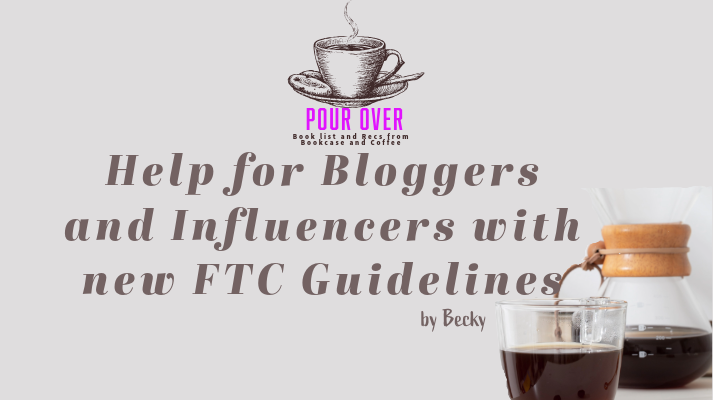Help for Book Bloggers and Influencers with new FTC Guidelines
Understanding the New FTC Guidelines: A very basic Interpretation
The new FTC guidelines have specific implications for bloggers and book influencers, particularly regarding how endorsements, reviews, and affiliate marketing are handled. To protect themselves and remain compliant, here are some key actions bloggers and book influencers should consider:
You can read the new FTC guidelines directly on the Federal Trade Commission’s official website. The guidelines are available at this link: FTC Endorsement Guides. This page provides detailed information on the updated standards and practices.
The new FTC guidelines have specific implications for bloggers and book influencers, particularly regarding how endorsements, reviews, and affiliate marketing are handled. To protect themselves and remain compliant, here are some key actions bloggers and book influencers should consider:
1. Be Transparent with Disclosures
- Always Disclose Material Connections: If you receive free products, payments, or use affiliate links, you must clearly and conspicuously disclose these connections. Ensure that your audience can easily notice and understand the disclosure.
- Disclose Early in Social Media Posts: On platforms like Instagram, TikTok, or Twitter, place your disclosure near the beginning of your post or caption. Avoid burying it at the end or within a long string of hashtags. The FTC suggests that hashtags like #ad might not be enough on their own, so context is crucial.
2. Handle Sponsored Content Carefully
- Make Sponsorship Clear: If a post or review is sponsored, clearly state this upfront. Do not present paid reviews as independent or unbiased; the audience should know if compensation was involved.
- Ensure Influencer Compliance: If you’re working with other influencers to promote content, make sure they also adhere to these disclosure requirements. You could be held responsible as the original content creator or brand partner if proper disclosures aren’t made.
3. Be Cautious with AI-Generated Content
- Disclose AI Usage: If any part of your content, such as reviews or promotional material, is generated using AI, disclose this to your audience. This ensures transparency and avoids misleading your followers about the source of your content.
4. Understand the Rules Around Affiliate Marketing
- Disclose Affiliate Links Properly: If you earn a commission through affiliate links, disclose this clearly before the link is clicked. A simple statement like, “I may earn a commission if you make a purchase through these links,” should be visible before the link.
- Be Aware of Earnings Implications: Non-compliance with affiliate link disclosures can lead to penalties or loss of affiliate partnerships, which could impact your income.
5. Avoid Fake Reviews and Misleading Endorsements
- Ensure Review Authenticity: Do not engage in or promote fake reviews. All reviews should be genuine and reflect real opinions or experiences with the product or book.
- Disclose Any Endorsements: If you endorse a book or product, disclose any relationships with the author, publisher, or other entities. This includes shared publishers, cross-promotion deals, or any other material connections.
6. Monitor Platform Guidelines
- Stay Updated with Platform Policies: Platforms like Goodreads, Amazon, or social media sites may start enforcing these guidelines more strictly. Stay informed about any changes in their policies to ensure your content remains compliant.
7. Address Potential Conflicts of Interest
- Disclose Dual Roles: If you’re also an editor, beta reader, or have any other relationship with the book or author, disclose this clearly in your review or post.
- Consider Avoiding Certain Reviews: If the conflict of interest is significant, it might be best to avoid reviewing that particular book to maintain credibility and avoid any perception of bias.
8. Educate Yourself Regularly
- Stay Informed: Regularly review the FTC guidelines and any updates to ensure you’re aware of the latest requirements. This helps protect your reputation and avoid potential legal risks.
9. Keep Records
- Document Your Disclosures: Keep a record of all your disclosures, including screenshots or copies of posts, to show compliance if ever questioned. This can be important if there’s a dispute or investigation.
10. Consult Legal Advice When Necessary
- Seek Professional Guidance: If you’re unsure about how to apply these guidelines, especially in complex situations, consider consulting a legal professional who specializes in advertising or digital media compliance.
By implementing these practices, bloggers and book influencers can protect themselves from potential legal risks, maintain transparency with their audiences, and build trust within their communities.



